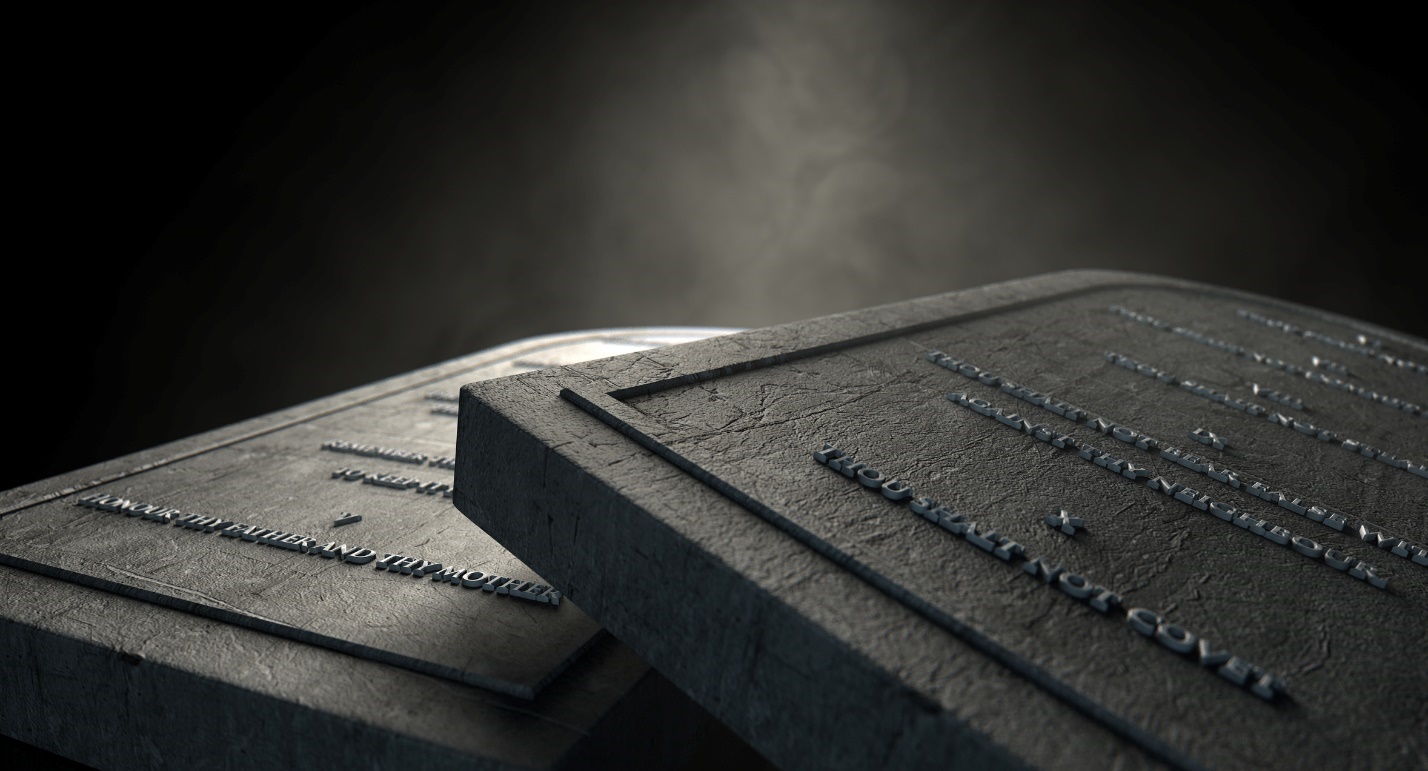BP29B
The Anderson family appears to identify with the Christian faith.
I say identify with faith instead of saying they aren’t believers because it’s never my place to judge whether a person loves Jesus or not. I also say identify instead of unequivocally stating that they are followers of Jesus because some of their truth claims seem to align with Christianity, yet they don’t seem fully sold out to God. It’s like they’re withholding certain parts of their heart from Jesus.

The father, Anders Anderson, sensed a strong calling to the mission field when he was in his mid-twenties, so he moved his young family to the deep jungles of Brazil to bring the good news of Christ to a small Indian tribe. Disturbing for Anders, the mission agency he worked with gave him the feedback that he was rigid and a loose cannon, so they had to reel him in a bit.
Feeling unfairly criticized and limited in his work, Anders hitched his wagon to a different missionary agency and moved his family to another people group in South America. His habit of informing the sending agency how they should conduct their outreach efforts resulted in him being furloughed back to America within several years.
Four different times, Anders changed missionary agencies only to eventually encounter the same impasse with those in authority. In the end, he moved his family to Brasilia where he worked as an ESL teacher and conducted his own independent ministry on the side without the meddling presence of someone who would tell him what to do.
Anders was deeply wounded by what he perceived as roadblocks that other believers placed in the path of his ministry. He ended up feeling totally unappreciated by other people. Over the years, his wounds slowly became infected until they were gangrenous with resentment.
Anders was fixated on his calling to save the lost. He was committed to accomplishing the pursuit of his identity as a missionary even if it meant running rough shod over the voice of authority and dragging his emotionally fragile wife to and fro through foreign lands. He moved his children around to so many villages and cities and boarding schools when they were young that they never put roots down anywhere. Most of their childhood, they felt like strangers, always feeling on the outside looking in.
Anders’ wife, Rachel, was an anxious person who protested her husband’s dedication to the Anders Anderson kingdom building project but never had the strength to sustain her disagreement. She would angrily vent her resistance for a few minutes but then reluctantly succumb to his will because she hated conflict.
Rachel didn’t just fear conflict. She was extremely uneasy with many other things as well: doctors, dentists, public speaking, eating with others, insects, and flying to name but a few. She dealt with her anxiety and fear by avoiding uncomfortable things and distracting herself with books and busyness. She also drank alcohol on the sly and took Ativan to help ease the clock that was wound so tightly in her body.
Rachel perceived that she had power over only three things, namely, her house, food and her three children. Accordingly, she kept her house immaculately clean (even when her family lived in a hut on the Amazon River), limited her food intake severely, and taught her children to be well-mannered and nice—even if it killed them (their spirits, that is).
She attempted to control her emotions by swallowing them, but of course, like steam in a boiling kettle, they would build up over time until she had to release them.

When her emotional dam broke, she directed rage toward her children in the form of screaming and stern lectures. During her release phase, no one could calm her down, not even her husband. It was like she had to vent her emotions at somebody until every last ounce of passion was spent. She left her rational mind behind during these episodes.
In some ways, control seemed to be her strength, but ironically, it spawned unbridled fury.
Henry, the oldest of the three children, was the opposite of his mother. It appeared that he wanted to control nothing. He slept until someone literally dragged him out of bed. He refused to do his schoolwork which led to a showdown at the OK corral with his mother every evening. Even his eating habits were uncontrolled. He ate until he could eat no more. But then he ate some more.
The middle child, Sarah, grew up quietly and seemed to be a happy child. When she left for college, however, she became a different person. Some would say she was finally free. Others would say she became enslaved. She began drinking and sleeping around with many men, some of them total strangers.
When confronted by the dean of students at her Christian college, she outwardly agreed to change her ways but inwardly was noncompliant. She left the college after two years and moved in with a man who had graduated from the same school.
The youngest child, Sam, graduated from college with a degree in finance, married a wife and had two children. He embraced the Christian faith of his parents but selected which parts of the Bible he agreed with and which ones he found unsavory to his theological taste buds. He parted ways with the sovereignty of God as well as belief in hell. He also shook his head at the doctrine of substitutionary atonement because he would not believe that a loving God would send His own son to be tortured and die.

Sam’s wife found her husband to be a good provider, but she noticed that he struggled with his bosses and with her expectations. He was not outwardly angry and defiant. He appeared to patiently listen to the correction and needs of others, but then he walked away and acted like he had heard not a word.
His wife described communication with him as talking to the wind.
Anders Anderson was dedicated to bringing truth to the lost. Rachel was a nice woman who only occasionally got angry. Henry was quiet and took his family to church whenever he was able to get out the door on time. Sarah had many friends and lived with a man who was successful in his job. Sam believed in God and got along with all his coworkers, just not his bosses or anyone who asked him to give of himself.
In so many ways, the Andersons are good people who identify as believers in God and who mostly fit into the mainstream of orthodox Christianity. Nothing too remarkable about them stands out—at first blush.
On closer examination, however, several common themes emerge in the Anderson family that have the potential to ruin their lives and every relationship they seem to value.
The Andersons—Anders, Rachel, Henry, Sarah and Sam—are going to do what they’re going to do.
They blow stop signs.
They quietly rebel against authority.
They believe and practice what gets them what they want, what makes them feel good, what fits into their belief system. The philosophy of the Anderson family is to pursue what feels good and avoid suffering. Sounds reasonable, right?
Maybe. But then again, maybe not.
Anders was so dedicated to attaining his own personal narcissistic satisfaction that he blew the stop signs of the authorities around him and selfishly ignored the needs of his wife and children. He had to achieve his mission in life and do it his way at the expense of listening to others.

Rachel ignored and even rebelled against God’s desire for her to suffer. What does that mean exactly? God wanted her to face the discomfort of conflict and speak the truth in love. He also desired her to move toward her fears instead of avoiding what scared her. In short, He wanted her to grow.
But Rachel wanted life to be easy, and somewhere inside, she was angry at God that life was so hard, so she defied Him and tried to make life comfortable for herself.
Yes, there is a suffering that occurs when we face difficult things instead of avoiding them. But sometimes, suffering is required of us in this world. Rachel hated saying yes to discomfort and no to pleasure because both were painful. She avoided difficult things until her suppressed emotions produced a cycle of strict control followed by an intense raging release. Control-release. Control-release. Everyone around her suffered because she refused to suffer.
We will experience pain if we face difficult things in this world but there will also be suffering if we don’t confront things. There is the pain of facing conflicts and things that scare us but there is also the pain that comes from avoiding them. As one person said it, we can have the pain that comes from growing or we can have the pain of staying the same. Either way, there will be pain.
Henry Anderson was committed to two things: pleasure and defiance. He did what pleased him but avoided everything else. He refused to say no to eating even as his weight climbed over 450 pounds. He sought what he wanted even if it defied the laws God put in the universe, namely, the importance of being disciplined even in what he ate. He blew many divine stop signs.
Henry was not interested in discipline, only in getting what he wanted–even if it killed him.
Did every member of the Anderson family pursue things to please themselves even at great risk to their physical health and to the potential harm of all their relationships? Sadly, yes. Was rebellion against God a quiet underground river within their souls? Yes.
Rebellion goes against our very nature—our initial perfect nature. It does, of course, seamlessly fit with our fallen nature. God has set up laws in the universe that call for obedience to Him, to honoring universal truth in the natural world, and to respecting even the way our bodies and souls have been created.

This obedience, honor and respect is what we find in every commandment God has given us. These loving laws are welcomed by our new self who is created in God’s image. However, they are distasteful to our fallen selves who want to do what they want to do with no interfering restrictions.
Obeying God, honoring His standards wherever they may be found, and respecting our own bodies are deeply opposed by our innately selfish nature.
To selfishly pursue our own kingdom as Anders did at the price of ignoring spouse, children and God is going to be expensive in the long run to all our relationships as well as to our own selves–even our bodies.
Avoiding suffering and deflecting the suppressed emotions onto children as Rachel did goes against God’s call to speak the truth, to forgive and to love one another.
Following in Henry’s footsteps and being undisciplined in all our ways is a defiance of the universal truth that we will reap what we sow. It also harms the temple of the Holy Spirit who lives within you.
Sleeping with multiple partners like Rachel did is disrespectful to your own body but even more importantly, to your heart and soul, as you accrue shame, depression and self-anger.
Deciding what parts of God’s revealed truth are congruent with your private belief system and dumping the rest is nothing short of arrogance and rebellion. That’s what Sam did.
Sam rejected God’s truth when it didn’t fit into his comfortable cognitive world and he also rejected his wife’s emotional demands when her truth—her needs–didn’t fit into his capacity. She required too much of him just as God did. But instead of growing by trying to love God and Rachel, he ignored the need to grow in love. God and his wife would have to bend to his needs.
So, rebellion and the pursuit of pleasure (which includes the avoidance of suffering) are the two fatal weaknesses in the Anderson family. Let’s briefly consider five sources that address these potentially deadly attributes.
I John 3 says that sin is lawlessness. Sin is not simply random failures to do the right thing or doing the wrong thing. It is a position of defiance, a practice of active rebellion against God’s authority.
Timothy Keller, a pastor in New York City, says that every human has within them a positive presence of unbelief. In other words, we are hard-wired to rebel against belief in God and obedience to His authority. This unbelief is who we are apart from believing in Jesus.
John Eldredge’s book, Waking the Dead, is built on the truth of John 10:10 where Jesus said, The thief only comes to steal and kill and destroy. I came that they may have life and have it abundantly.

Regarding these cross purposes of Jesus and Satan, Eldredge says, By all means, God intends life for you. But right now that life is opposed. It doesn’t just roll in on a tray. There is a thief. He comes to steal and kill and destroy. In other words, yes, the offer is life, but you’re going to have to fight for it because there’s an enemy in your life with a different agenda. There is something set against us. We are at war.
So, the bad news is that we’re born into a war—in the universe and in our own hearts. But the good news is that Jesus has come to bring us life.
Charles Spurgeon writes, Thou hast received the word with joy; thy feelings have been stirred and a lively impression has been made; but remember, that to receive the word in the ear is one thing, and to receive Jesus into thy very soul is quite another; superficial feeling is often joined to inward hardness of heart, and a lively impression of the word is not always a lasting one.
Scott Peck, the psychiatrist who has been referred to in an earlier post, says, Most of us are not so wise. Fearing the pain involved [we] attempt to avoid our problems. We procrastinate, hoping that they will go away. We ignore them, forget them, pretend they do not exist. We even take drugs to assist us in ignoring them, so that by deadening ourselves to the pain we can forget the problems that cause the pain. . . . Some of us will go to quite extraordinary lengths to avoid our problems and the suffering they cause, proceeding far afield from all that is clearly good and sensible in order to try to find an easy way out. . . . In any case, when we avoid the legitimate suffering that results from dealing with problems, we also avoid the growth that problems demand from us. It is for this reason that in chronic mental illness we stop growing.
So, what are all these sources telling us?
- We are born opposed to God and in active rebellion against Him, but we can be made right with Him through Jesus. We can become sons and daughters instead of rebels.
- When we believe, we need to be sure that we’ve received God not just into our ears but into our souls. Jesus then enters into the depths of our being and grows within us a heart of obedience.
- Once we are saved, we then need to choose to grow. One would think that the desire to grow would be natural, but as we have read, we’re born into a war where everything good and godly is opposed.
- We don’t want our growth to be choked by the lingering defiance of our flesh or an opposition to any suffering that might interfere with our sense of deserved pleasure that we defend to the death.
The purpose of this post is not to beat up on anyone but to expose things that might oppose what God has for us. The Andersons could be any of us. The Andersons are all of us.
Even as believers, we can choose not to suffer for the sake of growth but insist on pursuing our comforts and pleasures. Such a pursuit flows out of disobedient rebellion or out of a commitment to avoid suffering and rather follow the easy path in life. How easy it is for us to ignore divine stop signs or signage indicating that we should yield to our Creator or turn right when we want to go left.
Choosing to follow our signs instead of those of God is sin. It is the lawlessness of I John. We are actively choosing to live our lives opposed to God because we want what we want.
Blowing stop signs or disobeying God’s signage—whether out of rebellion or avoiding growth–may appear innocent or innocuous or even be largely hidden from the view of others and even our own selves. But the consequences of these small violations (or larger ones) will begin to show up in our lives.
Eventually, we’ll find ourselves obese, depressed, anxious, addicted to drugs, emotionally volatile, in conflict with others, perceived as selfish by our spouses and friends, disillusioned with God and possibly even deconstructing our faith because Jesus doesn’t seem to be working for us.
So, the bottom line is that you must obey stop signs. Why? Out of rigid legalism? No, because you love the sign giver who loved you enough to give you directions for a joy-filled life.
But Jesus doesn’t want you to obey only His STOP signs.

He also wants you to obey His other signs: GO where I want you to go. COME to me and I will give you rest. TURN to me and I will give you life. YIELD to me and I will bless you beyond measure. Daily MERGE your life with mine and you will live out the amazing purpose for which you were created and for which you will be remembered for eternity.
Jesus came to give us abundant life. Rebellion, selfishness and avoidance of the suffering inherent in growth interfere with appropriating that life.
Choose obedience to the Father who loves you so much that He sent His only son to rescue you from sin and death and you will have abundant life.
Choose growth and the Presence of the Spirit will direct your steps into growth that leads to joy.
Everyone then who hears these words of mine and does them will be like a wise man who built his house on the rock. And the rain fell, and the floods came, and the winds blew and beat on that house, but it did not fall, because it had been founded on the rock ~ Matthew 7:24, 25
